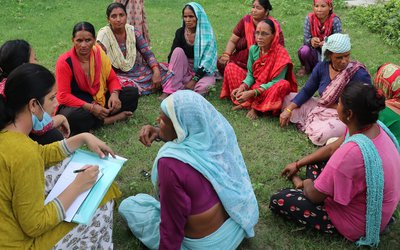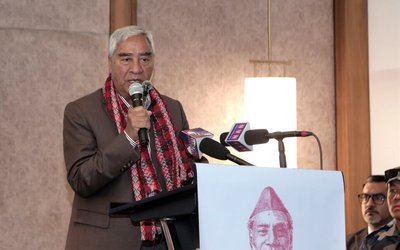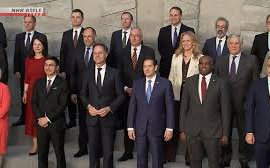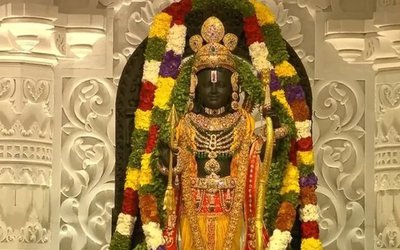From the beginning of the political civilization, people have been systematically annihilated. Thousands of leaders and sympathizers have been killed, forced to disappear or exiled. Most of the killing is somehow related to political agenda.
In short, some law experts call the "political genocide", a "politicide," which is a combination of acts of criminality, persecution and harassment aimed at causing a total or partial elimination of an opposition group. Politicide is killing groups of people because of their political or ideological beliefs. Political or ideological beliefs are board terms.
Who will forget the ethnic cleansing hidden behind Bhutan's happy face, derived by political motives? Bhutan is a country whose government has come to project an image of an idyllic land, behind which is one of the most shameful ethnic cleansing episode of the twentieth century.
In the 1980s, with the intention of strengthening Bhutan's national identity, the "One Nation, One People" campaign was launched to integrate ethnic and cultural peripheral groups into traditional Bhutanese society. From 1988 to 1999, during what many have called "ethnic cleansing", thousands of Bhutanese of ethnic Nepali (Lhotshampas) origin were forced by the authorities to move to Nepal. According to the UN, the number has exceeded 120 thousand. Behind the facade of a peaceful nation, there is a state that forcibly expelled one-sixth of its population, an act that has been described as a systematic ethnic cleansing. The expulsion of the Lhotshampas was a political act.
In Gujarat anti-Muslim riots nearly 2,000 people died in 2002. Violence against Muslims in Gujarat continues to be a black mark on India's reputation for religious equality. Muslims were slaughtered in broad daylight by squads of armed killers and organized by fascist militias, protected by the Gujarat government. Muslim women were gang raped, and were burned alive. Shops, stalls, offices and mosques were systematically destroyed. About 150,000 people had to leave their homes. But the genocide of Gujarat is relevant because it is part of a systematic vision. May be it was the political path for Modi.
Silent genocide of Rohingyas Muslims is an another example. Consider the magnitude of atrocities and the way politicians treat the Rohingyas in the land of Buddhist monks. The attacks on the Rohingya people in Myanmar was not a new phenomenon. The State not only has not fulfilled its duty to protect it but has sometimes participated in the atrocities but that had never happened to Rohingya people in Myanmar in the name of Political ideology.
Baluchistan suffers one of the biggest genocides of this century with more than 15 million people affected. Most of the massacres were carried out showing extreme cruelty, with a character of total destruction and exemplary terror against the civilian population.
It is true that Communism in Nepal has been fully inserted in the democratic game but
11 years of Maoist war had ended with killing some 19 thousand ((including both civilian and armed forces) people, displacing many from their home and country.
People's homes were illegally raided, killing students in student buses, stealing children for recruitment and dehumanizing the victims. All were systematically tortured in these enclosures, which recreated the atmosphere of the concentration camp of the Nazi regime. The Maoist war was a variation of genocide. Killing innocent people in the name of democracy and civil liberty so they can rule the country is another name for genocide. The mysterious slaughter of the royal family resembles a work of Shakespeare but, like many events, it is also politically motivated.
These are just a few examples. In every country, annihilation repeats in different forms. The last time this happened they called it the Holocaust. The Nazis did not annihilate the Jews for what they had done, nor for what they had not done. They exterminated millions of men, women and children for just being Jews.
Killing another human being is inherently wrong, no matter what the reason and circumstance is? It is a paradigmatic case of annihilation of the members and leaders of a group because of their ideological convictions, as well as the persecution of their sympathizers and the destruction of their social environment. All countries have their closet full of skeletons, a violent fact in their past that is not well explained and somewhere deep down it has political motive.
A new wave of political assassinations is camouflaged with the sole aim of reinforcing the power. Political opposition has been persecuted and tried to be exterminated in every country. The crimes against these expressions are a practice of repression to the construction of social and political alternatives as a civil exit to the causes of the armed conflict.
The restrictive definition of genocide would be violating the principle of equality before the law, while the crime is delimited by the characteristics of the victim and not by the criminal practice itself. Is it morally permissible to kill one innocent person for political or any other reason? Are there human lives that are valued more than others?
Author is Lecturer and IT consultant. He can be reached by email at info@dipakjoshi.com.np

Deepak Raj Joshi
(The author is a lecturer and IT consultant. He also writes fiction under the name of Kapeed Joshi. He can be reached by email at info@dipakjoshi.com.np.)
- Criminal Governance & Neopatrimonialism
- Jul 29, 2024
- Participatory Democracy
- Dec 07, 2023
- Rise Of Populism Boon Or A Bane
- Aug 13, 2023
- The Collapse Of Confidence And The Rise Of RSP
- May 17, 2023
- Lottocracy
- Apr 30, 2023















